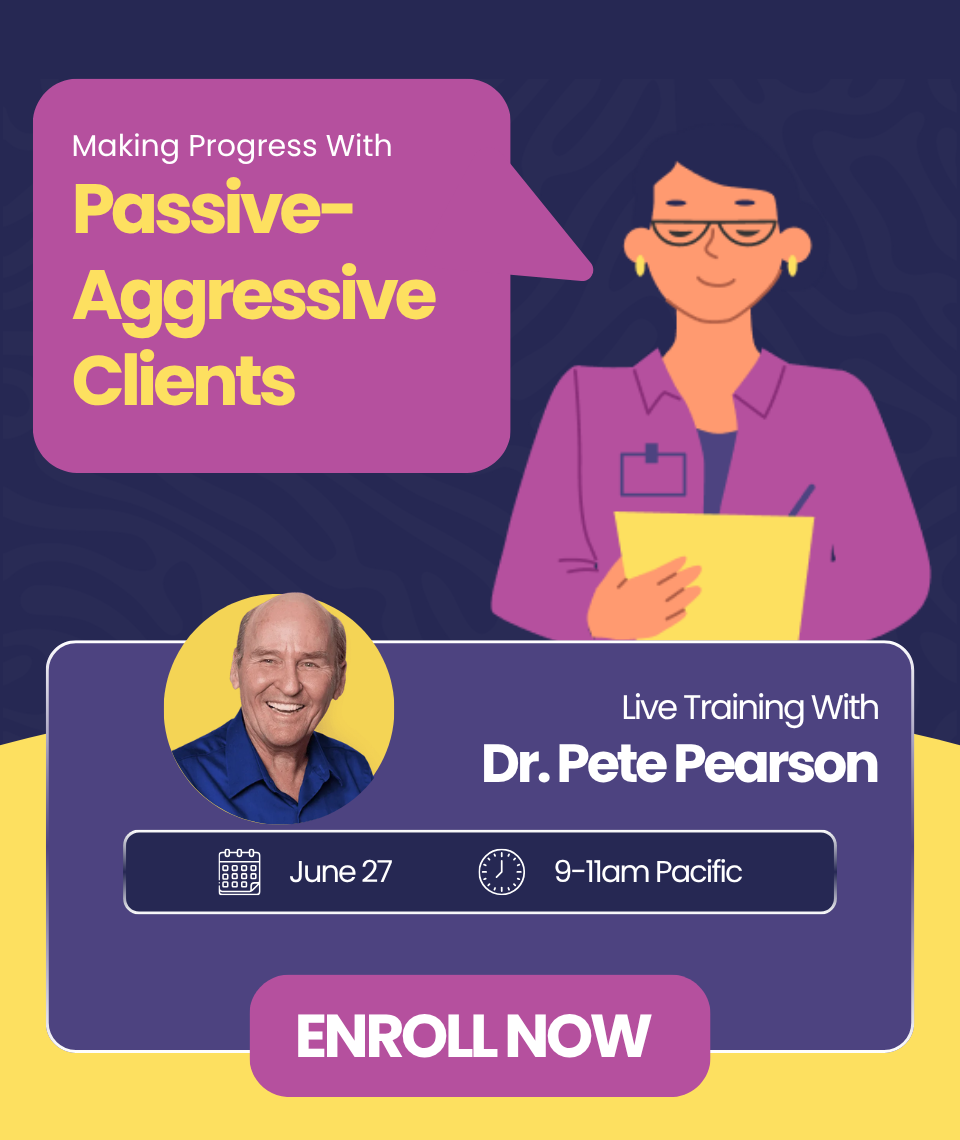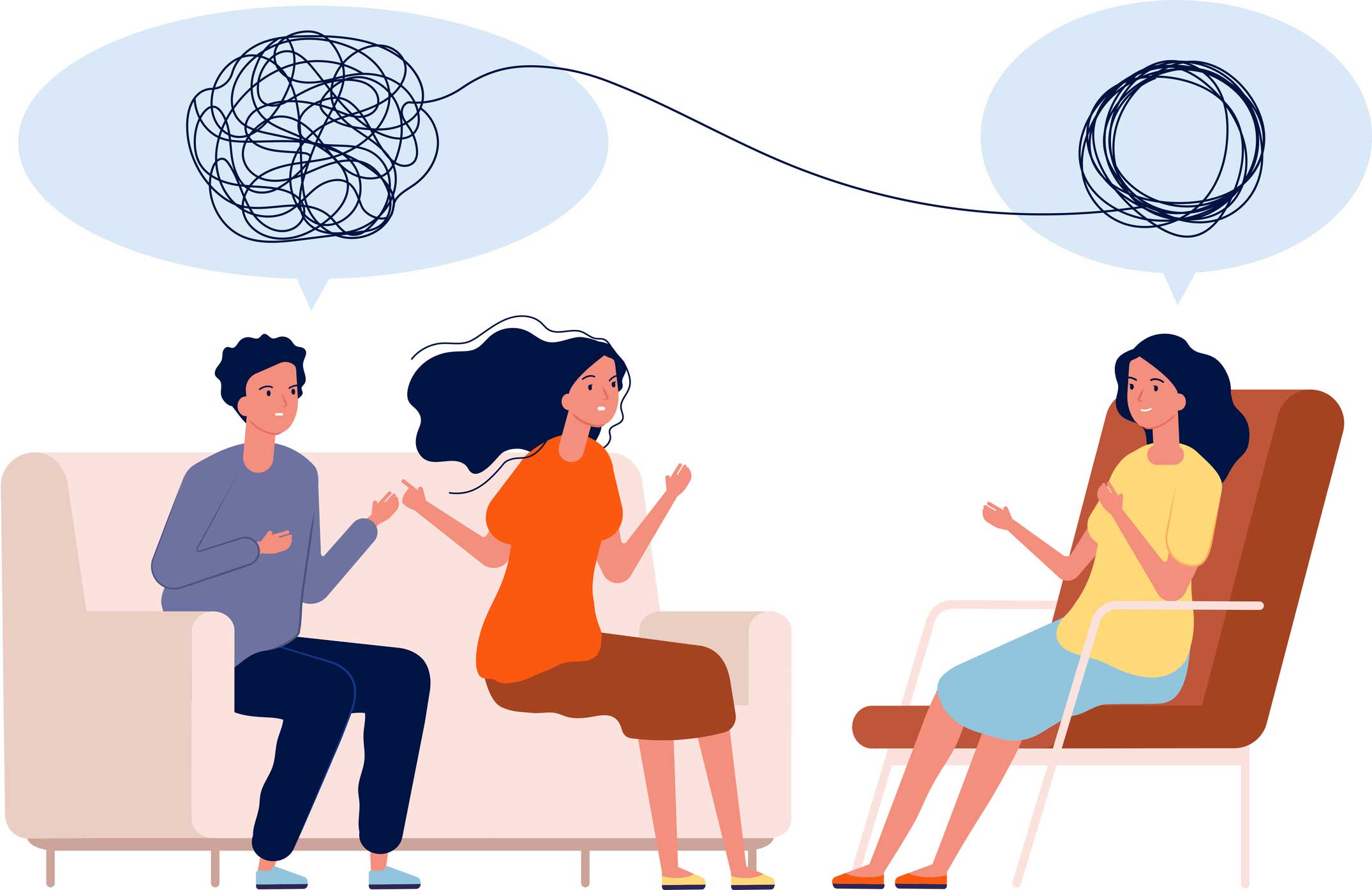“Practice Development Dispatch” Newsletter Collection
It was the first session with a very distressed couple -the woman had made an irrevocable decision the marriage was over. We were discussing her decision, but her husband did not want to accept it. He wanted their kids, ages 9 and 7, to have an intact family, and he still wanted to be with her. After some discussion, I became very clear that the marriage was over for her, and that it had been for years. Her only objective was better communication for the sake of the kids. Their goals were clearly irreconcilable.
I began by describing his dilemma: if he really heard what she was saying, he had no alternative but to feel depressed and grieve for a marriage that was over. If he kept putting energy into “saving the marriage” the meta message he was unwittingly communicating was, “I don't want to accept what you are saying, and I want you to respond to my concerns and goals instead of yours.” This is precisely the same message that led to her losing any hope that the marriage was viable and was largely responsible for her giving up on the marriage years ago.
All of us faced a dilemma at this point. Here's how I described it to the husband. “Right now Ben, no matter what approach I take with you, a part of you is going to feel bad. If I encourage you to listen and respect what Linda is saying, then it's all over. If I encourage you to keep fighting for your marriage, I will be frustrated because it takes both of you to rebuild, and Linda will be frustrated because she'll be in a situation with two men who don't acknowledge or respect the validity of her concerns.”
Ben and I continued to discuss how difficult it was for him to accept her decision and to start grieving the inevitable. By discussing what he was avoiding, he began to express his pain and recognize the dilemma he was facing.
Describing the dilemma was quite freeing for me. I no longer felt the burden of creating a solution since we all knew there was no possibility of a win-win. By describing the conundrum, I relieved myself of the impossible objective of somehow finding a way to effectively reach both people and create relief.
When couples enter therapy, each has a hope that somehow they will feel better from the experience. Sadly, this is not always the case. In this situation, one of them had to end up being frustrated because their goals were so polar opposite.
In our next session together, I asked both partners what stood out from the first session. Ben said he was starting to deal with the demise of his marriage and was feeling sad and angry about it. Linda said nothing in particular stood out, but that it was time to get on with discussing the logistics of separation, the finances, child arrangements, etc. so that they could have an amicable divorce.
Ben said he wasn't ready for that as he still had too much emotion. So I asked if Linda could act as an inquirer for Ben's distress. “Not really,” she said, “I have my own feelings of anger about Ben's passivity in avoiding dealing with our problems that led to this situation.”
Now I had another big dilemma. I decided to spell it out for them.
First, I talked to Linda about her conflicting desires. She wanted an amicable divorce without taking time to allow for a natural grief process. I told her, “Here is the problem–if we discuss logistics today, which is important, then the stored up grief and negative feelings will simply interfere with making and following through with good agreements. One or the other of you will probably get passive aggressive about follow through which will create a new cycle of distress. If we now discuss the anger and hurt that has accumulated, neither of you looks like you can be receptive or have empathy for what the other feels. Your individual pain is simply too great to be compassionate toward the other person. So if we discuss the pain, it will probably lead to re-stimulating more hurt. But if we go into logistics, the pain will override effective problem solving. This is not a simple problem. It requires a discussion on how we can approach it in a collaborative way. I can't find a way through this on my own–we need to discuss it and find a way together.”
Again, by describing the situation and the inherent dilemmas, it helped them release their fantasy that somehow I would find a magical way to respond to their contradictory desires. By maintaining the approach of looking for a solution together, I started to provide a model for how they could be more collaborative out of the office. This will be very important in the years ahead when they must co-parent.
In fact, they were able to start generating ideas about how to manage their grief first and then move on to logistics. By the end of the hour, I was actually looking forward to our next session instead of thinking, “Oh no, they're coming back.”
Have you ever had that thought? “Oh no, they're coming back.” I hope this newsletter provides ideas that help reduce its frequency. My weekend workshop is a more powerful tool to help those difficult couples, and it could be a tremendous resource for your couples. They will learn how to express themselves clearly; disagree without nasty arguments; collaborate as a team; negotiate with each other; bring out the best in each other; and reduce stress. Best of all, they'll come back to you prepared for more effective therapy with you. For more information on the workshop, visit our website.
Until next month,
Pete Pearson
Since 1984, The Couples Institute has trained therapists who want to work more effectively with couples. We'd like to help you develop your skills and improve your confidence with couples. Visit www.couplesinstitute.com and subscribe to our free newsletter, “Practice Development Dispatch.”
© Copyright MMIV The Couples Institute

 We respect your privacy.
We respect your privacy.



